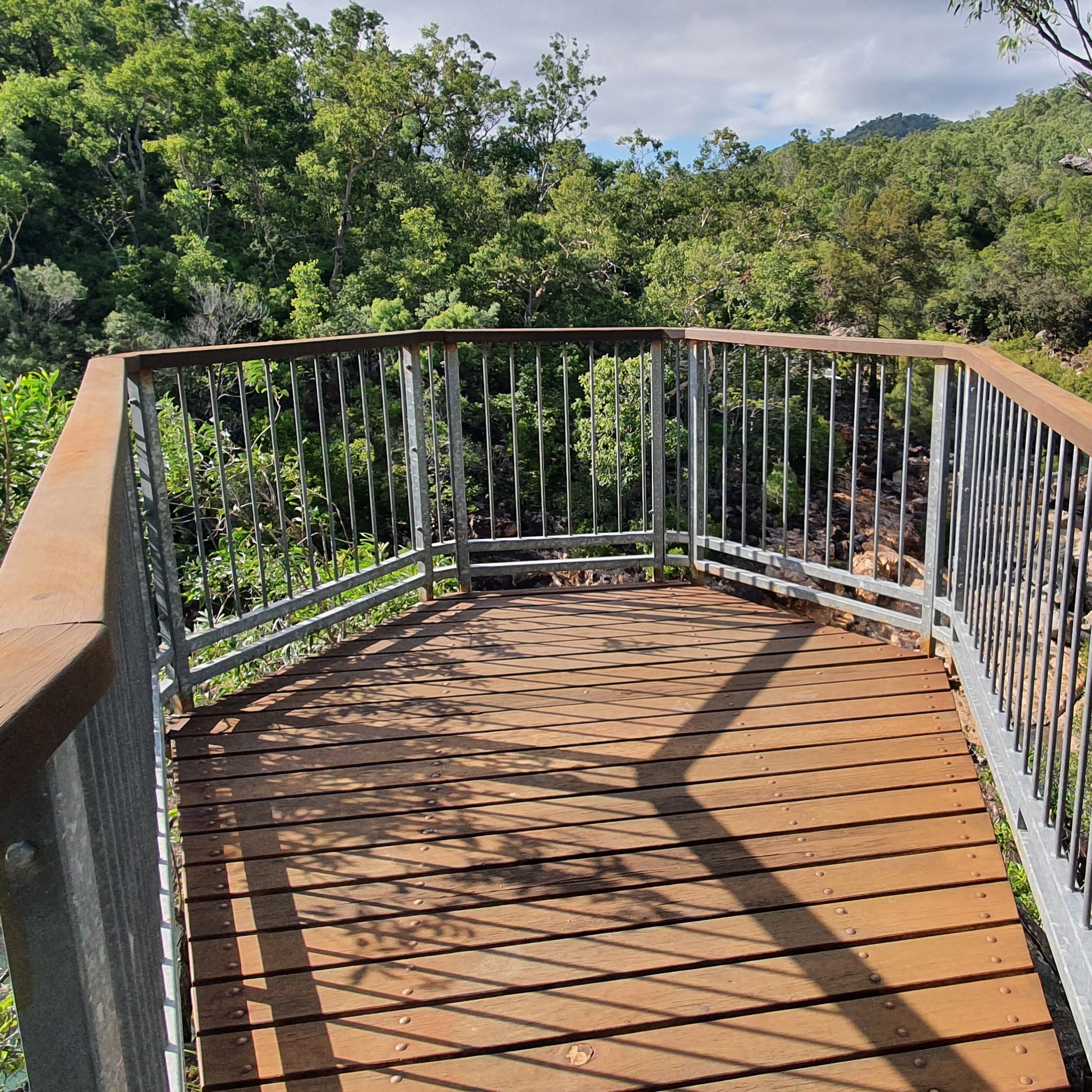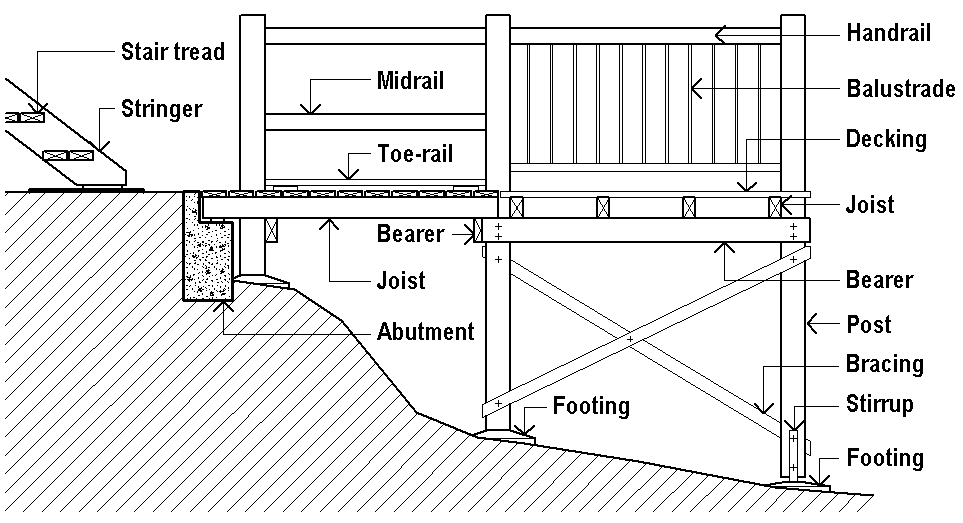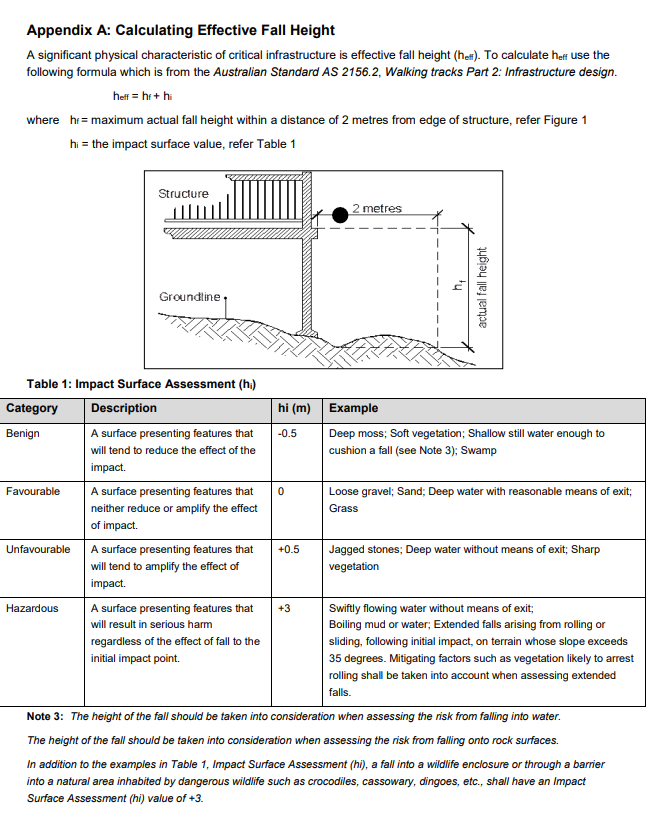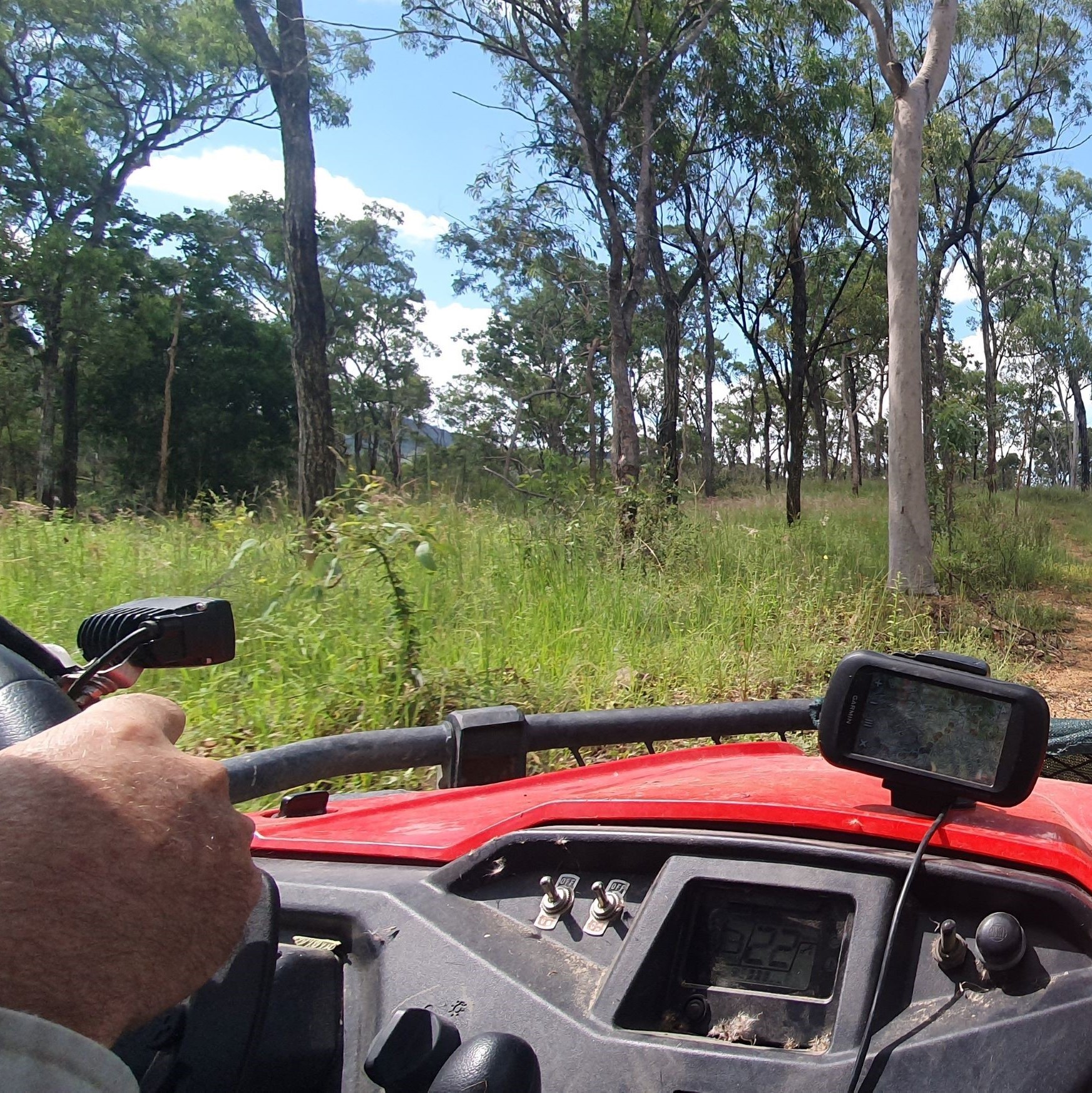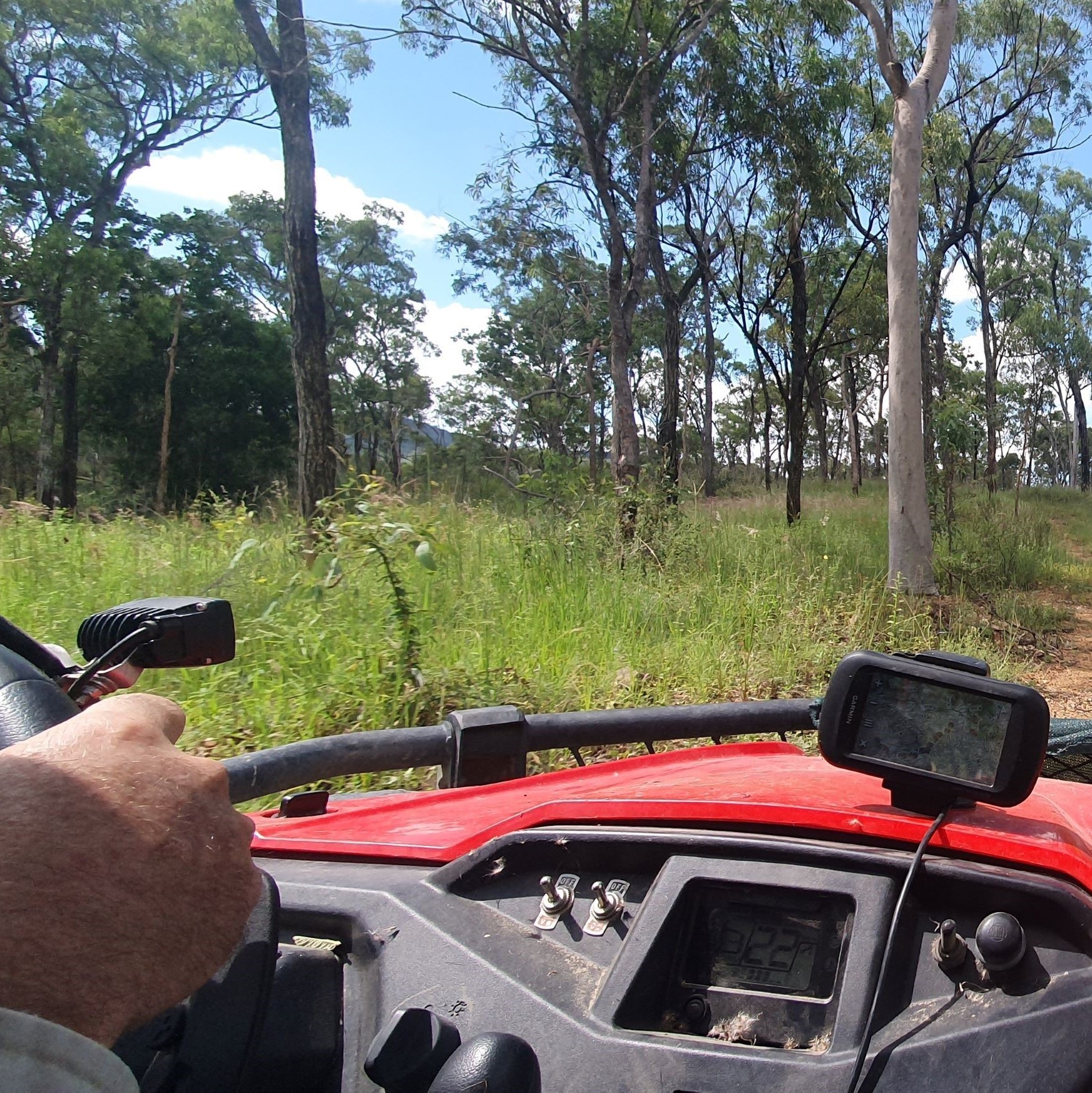Title Page
-
Conducted on
-
Assessor
QPWS ASSET INSPECTION CHECKLIST Alligator Creek Lookout (note: use 1 assessment per structure)
Substructure
-
Footings (eg: undercutting erosion, concrete cracking, movement, not visible) - Specified Condition = 3
- 1 - Very poor - Asset has failed; not operational; not viable; unfit for occupancy or normal use, environmental / contamination /pollution issues exist
- 2 - Poor - badly deteriorated; potential structural problems; inferior appearance; major defects; components fail frequently
- 3 - Fair - average condition; defects are evident; worn finishes require maintenance; services are functional but need attention; deferred maintenance work exists
- 4 - Good - minor defects; superficial wear & tear; some deterioration to finishes; major maintenance not required
- 5 - Excellent - no defects; as new condition & appearance
- N/A
-
Retaining/abutments (e.g. rot, rust, splitting, movement, not visible for inspection) - Specified Condition = 3
- 1 - Very poor - Asset has failed; not operational; not viable; unfit for occupancy or normal use, environmental / contamination /pollution issues exist
- 2 - Poor - badly deteriorated; potential structural problems; inferior appearance; major defects; components fail frequently
- 3 - Fair - average condition; defects are evident; worn finishes require maintenance; services are functional but need attention; deferred maintenance work exists
- 4 - Good - minor defects; superficial wear & tear; some deterioration to finishes; major maintenance not required
- 5 - Excellent - no defects; as new condition & appearance
- N/A
-
Subframe (bearers, joists, bracing, posts, stirrups, anchors e.g. rot, rust, splitting, movement, not visible for inspection) - Specified Condition = 3.5
- 1 - Very poor - Asset has failed; not operational; not viable; unfit for occupancy or normal use, environmental / contamination /pollution issues exist
- 2 - Poor - badly deteriorated; potential structural problems; inferior appearance; major defects; components fail frequently
- 3 - Fair - average condition; defects are evident; worn finishes require maintenance; services are functional but need attention; deferred maintenance work exists
- 4 - Good - minor defects; superficial wear & tear; some deterioration to finishes; major maintenance not required
- 5 - Excellent - no defects; as new condition & appearance
- N/A
Superstructure
-
Handrail/midrail/balustrade/ posts/toerail (e.g. rot, splintering, rust, movement, cable tension, chain wire used) - Specified Condition = 3.5
- 1 - Very poor - Asset has failed; not operational; not viable; unfit for occupancy or normal use, environmental / contamination /pollution issues exist
- 2 - Poor - badly deteriorated; potential structural problems; inferior appearance; major defects; components fail frequently
- 3 - Fair - average condition; defects are evident; worn finishes require maintenance; services are functional but need attention; deferred maintenance work exists
- 4 - Good - minor defects; superficial wear & tear; some deterioration to finishes; major maintenance not required
- 5 - Excellent - no defects; as new condition & appearance
- N/A
-
Decking (e.g. rot, splintering, rust, protruding fixings, warping, loose boards) - Specified Condition = 3.5
- 1 - Very poor - Asset has failed; not operational; not viable; unfit for occupancy or normal use, environmental / contamination /pollution issues exist
- 2 - Poor - badly deteriorated; potential structural problems; inferior appearance; major defects; components fail frequently
- 3 - Fair - average condition; defects are evident; worn finishes require maintenance; services are functional but need attention; deferred maintenance work exists
- 4 - Good - minor defects; superficial wear & tear; some deterioration to finishes; major maintenance not required
- 5 - Excellent - no defects; as new condition & appearance
- N/A
-
On ground surface (concrete, paved, asphalt, stabilised deco etc.) - Specified Condition = 3
- 1 - Very poor - Asset has failed; not operational; not viable; unfit for occupancy or normal use, environmental / contamination /pollution issues exist
- 2 - Poor - badly deteriorated; potential structural problems; inferior appearance; major defects; components fail frequently
- 3 - Fair - average condition; defects are evident; worn finishes require maintenance; services are functional but need attention; deferred maintenance work exists
- 4 - Good - minor defects; superficial wear & tear; some deterioration to finishes; major maintenance not required
- 5 - Excellent - no defects; as new condition & appearance
- N/A
Furniture & fittings
-
Brackets & fasteners (connector plates, bolts, etc. e.g. rust, lack of washers, movement, rusted triple grips, not as specified) - Specified Condition = 3.5
- 1 - Very poor - Asset has failed; not operational; not viable; unfit for occupancy or normal use, environmental / contamination /pollution issues exist
- 2 - Poor - badly deteriorated; potential structural problems; inferior appearance; major defects; components fail frequently
- 3 - Fair - average condition; defects are evident; worn finishes require maintenance; services are functional but need attention; deferred maintenance work exists
- 4 - Good - minor defects; superficial wear & tear; some deterioration to finishes; major maintenance not required
- 5 - Excellent - no defects; as new condition & appearance
- N/A
Finishes
-
Protective finish (timber preservative, oil, galvanising, powder coat, paint e.g. blistering, cracking, lack of applied finish) - Specified Condition = 3
- 1 - Very poor - Asset has failed; not operational; not viable; unfit for occupancy or normal use, environmental / contamination /pollution issues exist
- 2 - Poor - badly deteriorated; potential structural problems; inferior appearance; major defects; components fail frequently
- 3 - Fair - average condition; defects are evident; worn finishes require maintenance; services are functional but need attention; deferred maintenance work exists
- 4 - Good - minor defects; superficial wear & tear; some deterioration to finishes; major maintenance not required
- 5 - Excellent - no defects; as new condition & appearance
- N/A
CRITICAL INFRASTRUCTURE SPECIFIC QUESTIONS:
-
Have site conditions altered the structures effective fall height (heff)?
-
GENERAL SITE CONDITIONS (including vegetation encroachment, drainage; site stability e.g. slip planes, rock fracturing etc.)
-
Description
OTHER NOTES/LIMITATIONS/SERIOUS HAZARDS (e.g. vegetation restricts access or views, trees against structure, vandalism, doesn’t match original drawings, elements obscured attach additional notes if not enough space):
-
Description
Task list (Condition based maintenance)
-
Asset Elements
-
Defect description
-
Task description (Note, include any specific location notes)
-
Task scope (i.e. Area/quantity involved; type of materials; service provider type required etc.)
-
Priority (1-4)
- 1- Works needed to: meet maintenance related statutory obligation and due diligence requirements; ensure the health and safety of users; prevent serious disruption of activities and/or may incur higher costs if not addressed within 1 year
- 2 - Works that: affect the operational capacity of the asset; are likely to lead to serious deterioration & therefore higher future repair costs if not addresses between 1 to 2 years
- 3 - Works that: have minimal effect on the operational capacity of the asset but are desirable to maintain the quality of the workplace; are likely to require rectification within 3 years
- 4 - Works that: can be safely and economically deferred beyond 3 years and reassessed at a future date
- Caution - Do not program critical maintenance items which require immediate rectification. These items warrant urgent action as unplanned maintenance and should be reported to the relevant asset officer ASAP
-
(A,S,E) Risk Type: the area of risk created by the defect. A = the asset, S = health and safety, E = the environment
-
Indicative Price (ex GST)
Engineering
-
Engineering or other higher level inspections required ?
Signature
-
Sign
